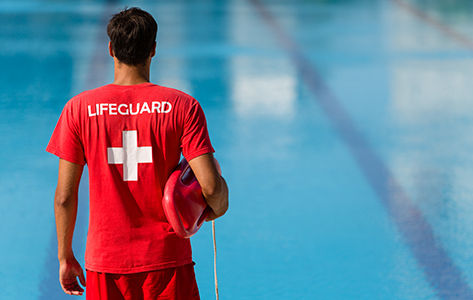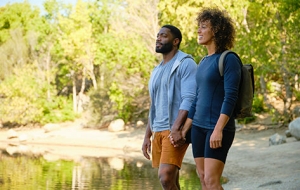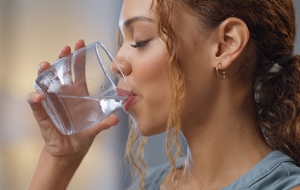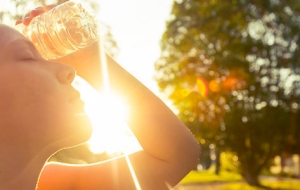
It’s vacation season, and families are spending lots of time in and around the water. So, whether you’re taking a dip in a pool, swimming in the ocean, or boating on a lake, make sure you take a few simple precautions to ensure you and your family stay safe this summer.
“Our doctors take care of lots of water-related injuries during the summer months,” says Navpreet Minhas, MD, a primary care doctor at Atlantic Health System. “It’s easy to lose your footing on wet, slippery surfaces around pools or natural bodies of water. That’s why it’s so important to know how to swim and take safety measures to prevent accidents.”
When it comes to water-related activities, the biggest risk is drowning. Each year in the U.S., nearly 4,000 people die from drowning, according to the Centers for Disease Control and Prevention (CDC). Another 8,000 people experience a non-fatal drowning annually.
Here are six ways to make the most of your aquatic adventures and avoid a trip to the doctor’s office or hospital.
1. Swim with a buddy.
Never engage in water activities alone, swim with a friend whenever possible. Also swim in the presence of a lifeguard at the beach or pool. If no lifeguard is present, make sure a responsible adult supervises all water activities.
2. Take swim lessons.
Adults and children who can’t swim or are weak swimmers have the greatest risk of drowning. Swim lessons can help you improve your strength and endurance in the water. Also consider learning basic cardiopulmonary resuscitation (CPR) to help save a life in a critical situation.
3. Know the depth of the water.
Public pools are required to post water depths, and you should never dive into a pool or body of water that is less than nine feet deep. “Diving into shallow water can cause serious head and spinal cord injuries,” says Dr. Minhas.
4. Wear a life jacket.
If you’re boating, rafting, water skiing, jet skiing or even fishing, adults and children should wear a properly fitted life vest. According to the U.S. Coast Guard, 85% of people who died in boating-related drownings in the U.S. in 2022 were not wearing a life jacket. “It would also be wise to wear water shoes when swimming or kayaking in lakes, rivers and streams,” says Dr. Minhas.
5. Avoid horseplay.
Don’t let children or teens run around the sides of the pool or push each other on wet docks or soaked surfaces. Rough play around the water often leads to accidents. And when playing in the water, never dunk or hold down your friends.
6. Limit alcohol consumption.
High blood alcohol levels increase risky behavior and impair balance, coordination, and judgment. The CDC reports that alcohol use is involved in 70% of water-related deaths and emergency department visits. Alcohol can also dehydrate you, which raises your risk for heat-related illnesses.
Know Before You Go
Understanding the differences between primary care, urgent care and the emergency department will help you make more confident decisions should you or a loved one face a medical situation.
Related Articles
Your Healthy Summer Guide
Atlantic Health System is your healthy summer guide to a safe and fun season. From helpful tips to preventive and urgent care, we've got you covered for whatever summer brings.
Safety Tips for Exercise in the Summer Heat
Even seemingly gentle activities can lead to unexpected injuries. Learn helpful tips for preventing injury when exercising in the summer heat.
Are You Drinking Enough Water?
Learn a simple way to monitor your hydration levels this summer and check out these helpful tips to ensure you’re getting enough fluids.
Protect Your Skin from Sun Damage this Season
Summertime activities bring us out in the sun. Whether it’s time spent at the beach, pool, park, or garden, it’s important to protect your skin from the glare of ultraviolet (UV) rays -- and lower your risk of potential skin damage.
Avoid Heat Exhaustion this Summer
The summer heat and humidity sneak up on us. It is important to recognize the symptoms of heat exhaustion and heat stroke so you can protect yourself and those around you.




